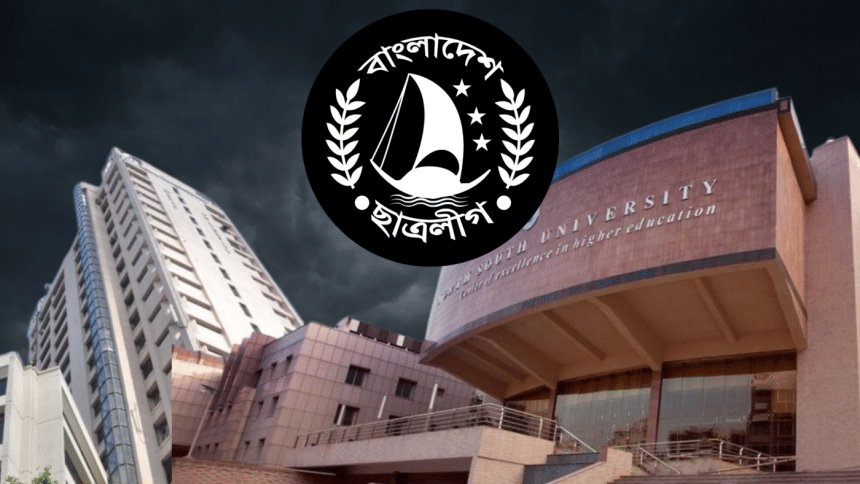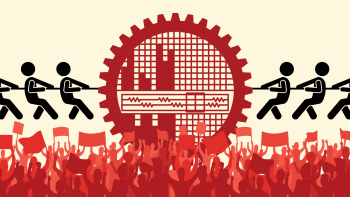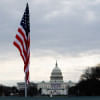Why students are worried about BCL committees at private universities

During the university admission season of 2016, I got accepted into an engineering program at a public university outside Dhaka. I was excited about it, but by the time I reached the gates of that university to complete my admission, that excitement died down and turned into fear.
A banner stretching the entire height of the university's main academic building caught my attention. It was a banner welcoming the university's newly elected leader of a political organisation. What felt even more jarring about this was the fact that the leader in question was the head of the department I was supposed to enrol in.
It didn't take me long to do a 180 and see myself out of that university without taking admission. Later that year, I enrolled myself into an engineering program at a top private university in Dhaka. The costs there were significantly higher, but I comforted myself saying that at least such politics would not find its way into a private university, the politics I ran away from earlier that year.
Like me, there are thousands of students who, despite getting the chance to study at various public universities across the country, have to make the tough choice of not doing so simply because of the politics associated with those universities. Like me, they would rather spend almost ten times the amount it takes to study at a public university and enrol in a private one than having to tolerate the political chaos at public universities.
Sadly, this is no longer an option as a couple of days ago, Bangladesh Chhatra League (BCL) announced the official formation of BCL committees across several of the country's top private universities. Most of the students at these private universities have strongly criticised the decision, and they have good reason to do so.
Over the last few years, BCL has developed a bad reputation as the student wing of the country's ruling party. The group has repeatedly bullied, harassed, and often engaged in physical violence against those who shared different opinions or views from theirs. The murder of BUET student Abrar Fahad in 2019 acts as a grave reminder of how ruthless the group can get.
From forcing students to leave their dormitories to assaulting them in public or secrecy – BCL has done it all. Local news portals as well as the general public bear witness to the atrocities committed by the group. Private university students, therefore, are in their rights to be worried about this group infiltrating their educational institutions.
But why now? What made the political group turn towards private universities?
One of the main reasons for this could be the fact that private university students in the last few years have played active roles in protesting against major injustices. Whether it was the 2015 "No VAT on Education" protests, or the 2018 "Road-Safety Protests", this particular group of students has almost always voiced their concerns. On top of that, these students have also gone on to protest actions or decisions of their own universities which they unanimously agreed were unjustified.
BCL is either eager to bring these students under their wing to gather more support, or they are looking to ensure that such protests don't break out in the near future, which can often go against major and controversial government-backed policies and decisions. With the 2023 general election fast approaching, one can understand BCL's motive to aim for new recruits from private universities.
Scouring social media will make you realise BCL's take on these latest developments. As per the comments made by many of the organisation's members and top leadership, BCL's presence within these universities is vital to prevent the rise of militancy. These individuals associated with the group have even gone as far as saying that without their presence, these universities will produce students that will one day become terrorists.
Another reason BCL is repeatedly stating for establishing their committees within these institutions is that other rival political parties already have student committees inside the universities. Thus, it is only logical for them to establish their committees here as well.
During my four years at university, I have never seen any of the so-called rival groups hold any rally or political event at my university. BCL's claim that these rival groups exist lacks evidence. As a rebuttal to that, BCL will likely say that it will not be long before these rival groups start their activities at the universities, for which they must be the first ones to establish their ideologies, which according to them reflect the true spirit of nationalism.
As for the students of these private universities, on-campus harassment and violence are not the only concerns. Many are also fearing the influence the political wing will have on their academics as well as on various university policies. How long will it take before faculty members and the administrative staff are influenced to side with these groups? What will happen when the universities fail to control these student political organisations? And who knows how day-to-day academics might be affected because of all this?
What political groups like BCL stand to gain by infiltrating private universities is something we will have to wait to find out. As of writing this article, most of the private universities are yet to officially comment on the situation. BRAC University did respond to the students' concerns. However, their response fails to address how they plan on dealing with the situation at hand, and what actions they might take to prevent politics from interfering with the university's day to day operations. It was a generic response to a situation that requires much more. One might even call it bland.
However, as students grow more and more impatient and worried with time, universities must respond to the situation and share concrete ideas as to how they plan to handle the situation. Otherwise, their silence regarding the issue will only lead to more panic among the students and their parents.
Private universities in Bangladesh have a lot of problems. They are not the embodiment of how a perfect educational institution should be. Despite that, hundreds and thousands of students still enrol in these institutions simply because they are (or were) free from politics. That freedom is being challenged right now, and if not acted on or overseen properly, the situation is likely to worsen at some point.
For those of us who oppose the idea of student politics entering private universities, we are likely to be branded as anti-state, anti-government, or even terrorists. These political groups will do whatever it takes to turn the narrative in their favour. At this stage, you are either one of them, or you are against them; there is no in-between.
Faisal Bin Iqbal is a sub-editor at SHOUT.

 For all latest news, follow The Daily Star's Google News channel.
For all latest news, follow The Daily Star's Google News channel. 









Comments